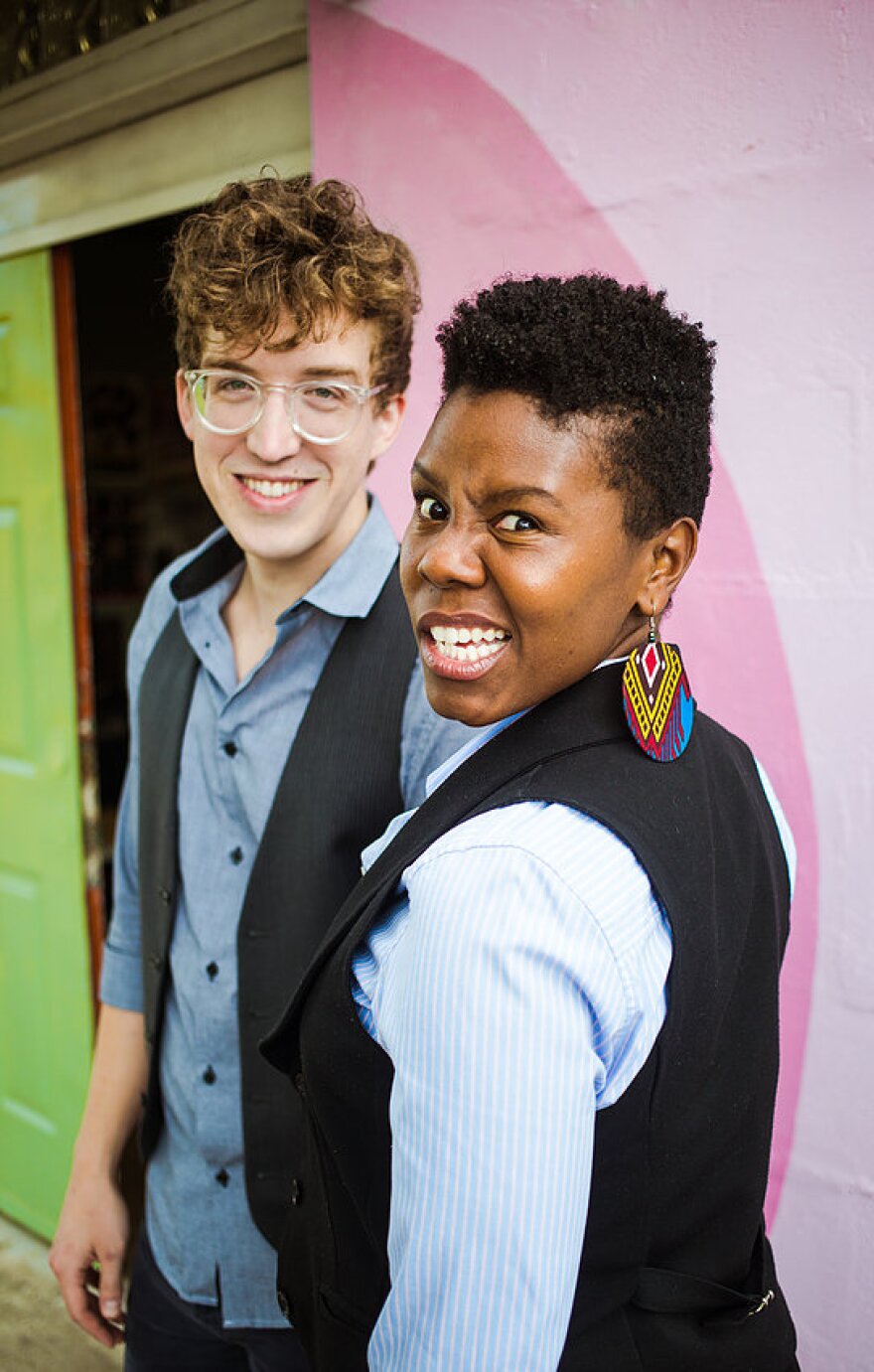“I play all the characters in whatever world or scene we’re in at the time, and Quinn plays me,” says Shannon Stott, who is one half of the improv troupe Twins. “And if you haven’t figured it out by now, Quinn is a white male and I am a black female.”
Stott’s partner Quinn Buckner adds with a laugh, “If you haven’t figured it out yet, by the… magic of radio…”
Twins came into being when Stott and Buckner (who are not actually twins, but are actually best friends), both improv veterans, started discussing a longstanding but frustrating truth about the improv world.
“Across the board, the perspective has been from one perspective – the stories that have been told and the way that they’ve been told are usually from a white male perspective,” Stott says. “Also, there aren’t very many people of color at all on stage, as far as improv goes.”
“And it’s slowly changing,” Buckner adds. “And hopefully we’re getting better at it.”
Stott and Buckner both wanted to create a format that would address the problem and have a little fun with it, and after some workshopping they hit upon the format It’s Okay to Laugh, in which Buckner plays Stott and Stott plays everybody else.
“[In traditional improv], consciously or subconsciously, when anybody that’s basically not a white man is onstage with a white man, they’re doing work to get onto their page to tell their story,” says Buckner. “And so with this, hopefully, we’re flipping the script a little bit [and] we’re making me do the work in front of everybody, to show it can be done.”
The format of It’s Okay to Laugh encourages both Buckner and Stott to step out of a scene when necessary; sometimes Buckner pauses to check in and see if he’s hitting the mark and sometimes Stott pauses to let Buckner know that his is not. “Which is always very, you know…” Buckner starts.
“Fun. Right, Quinn?” Stott suggests.
“I would say maybe a little terrifying.”
“No, no. Fun. I mean, that’s comedy, right? Fun and terror make comedy?”
“I think that’s the formula. Comedy equals terror plus fun,” says Buckner.
“It’s not about getting it right. It’s about the process,” Buckner says. “Hopefully it’s about… watching these two people work through this perspective and this idea in front of everyone else.”
“People should be able to communicate, and through trust and talking… and making mistakes – which is what we do on stage – trying to figure out what it is like to go through somebody else’s life and then relate to them on that level,” Stott says. “That builds a lot of friendship and trust and love.”
"It's Okay To Laugh" is supported in part by the Cultural Arts Division of the City of Austin Economic Development Department. There are several shows schedule at the Museum of Human Achievement through April.





